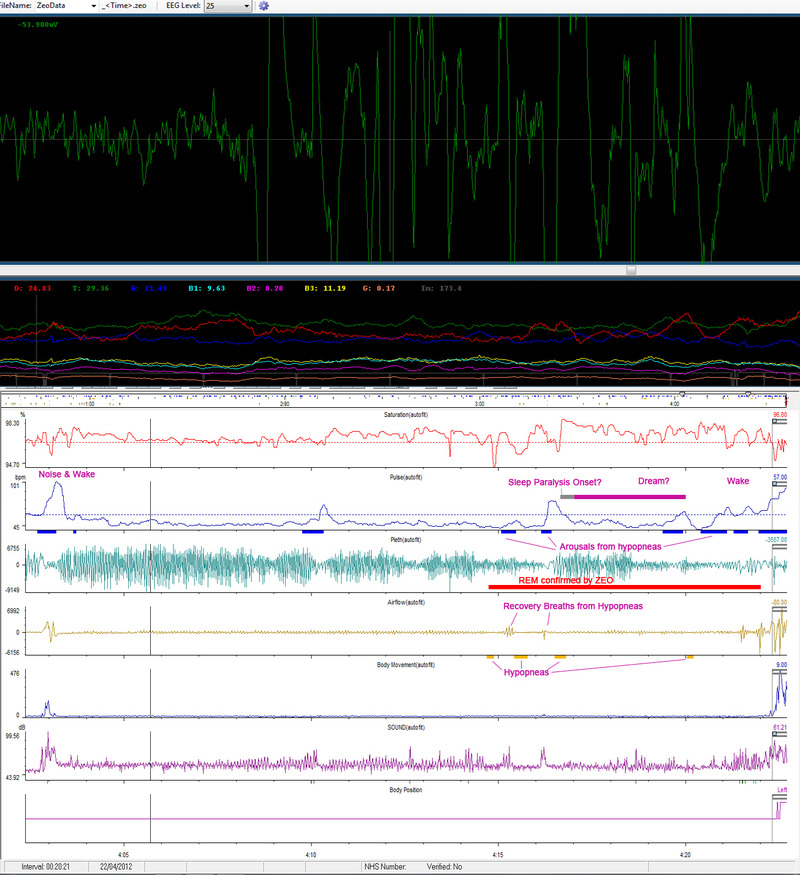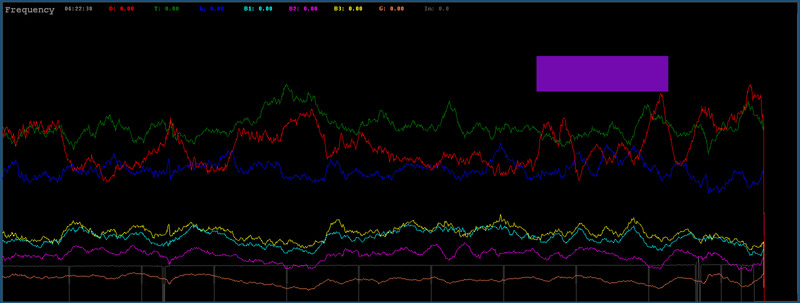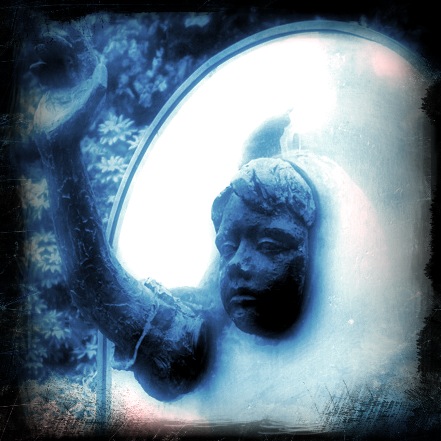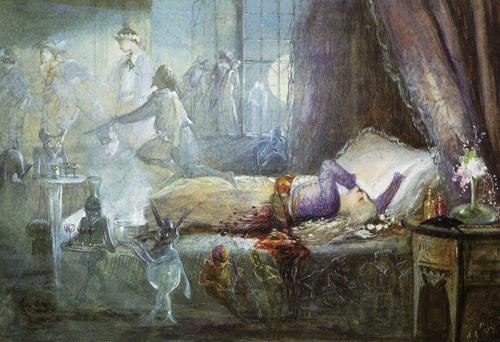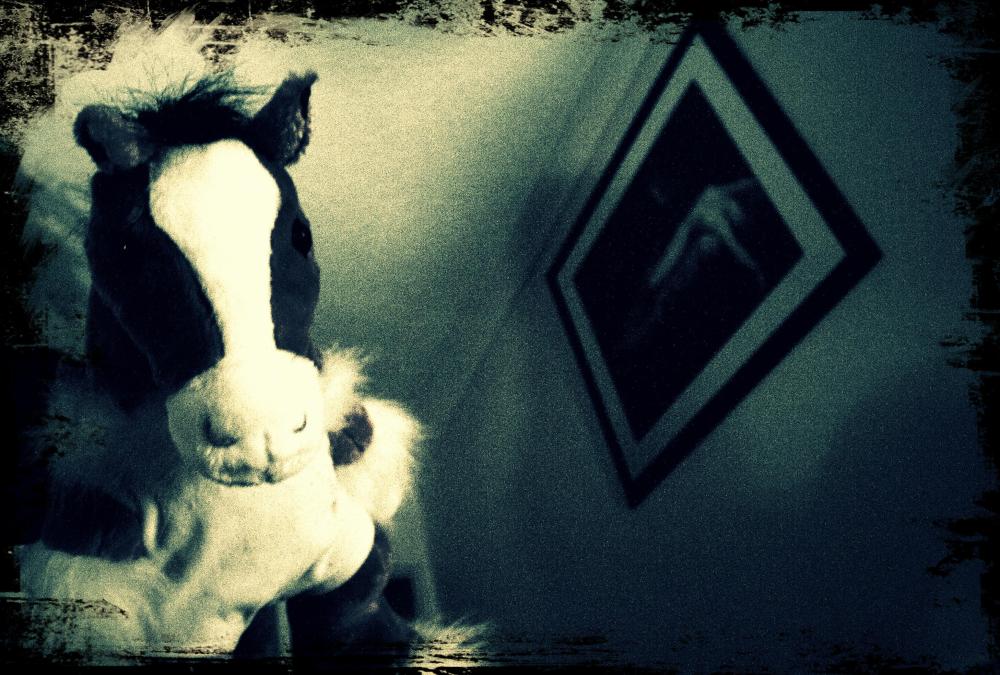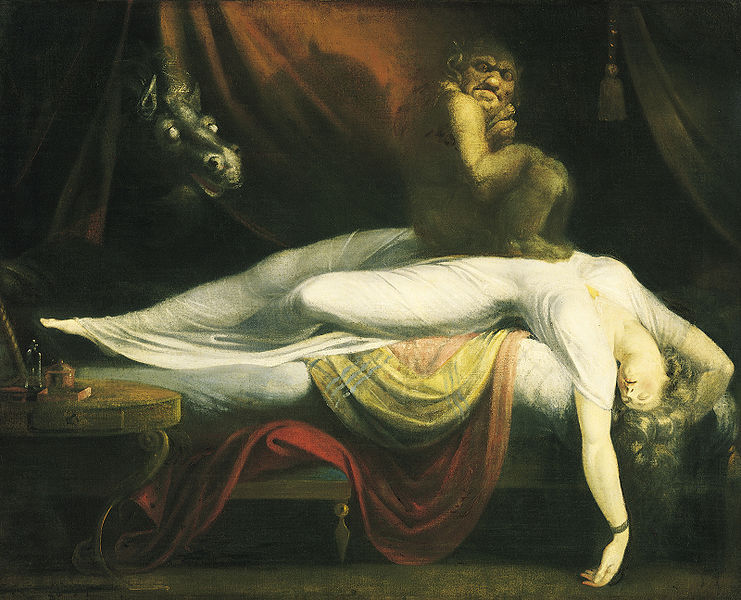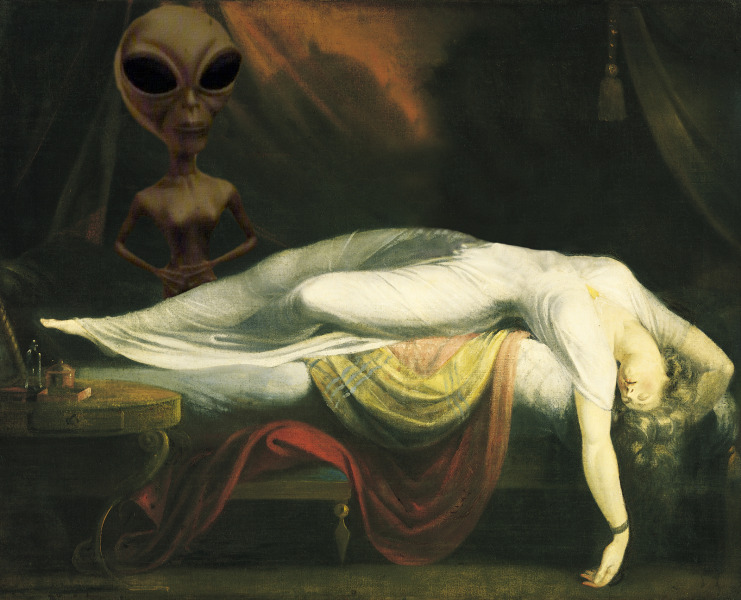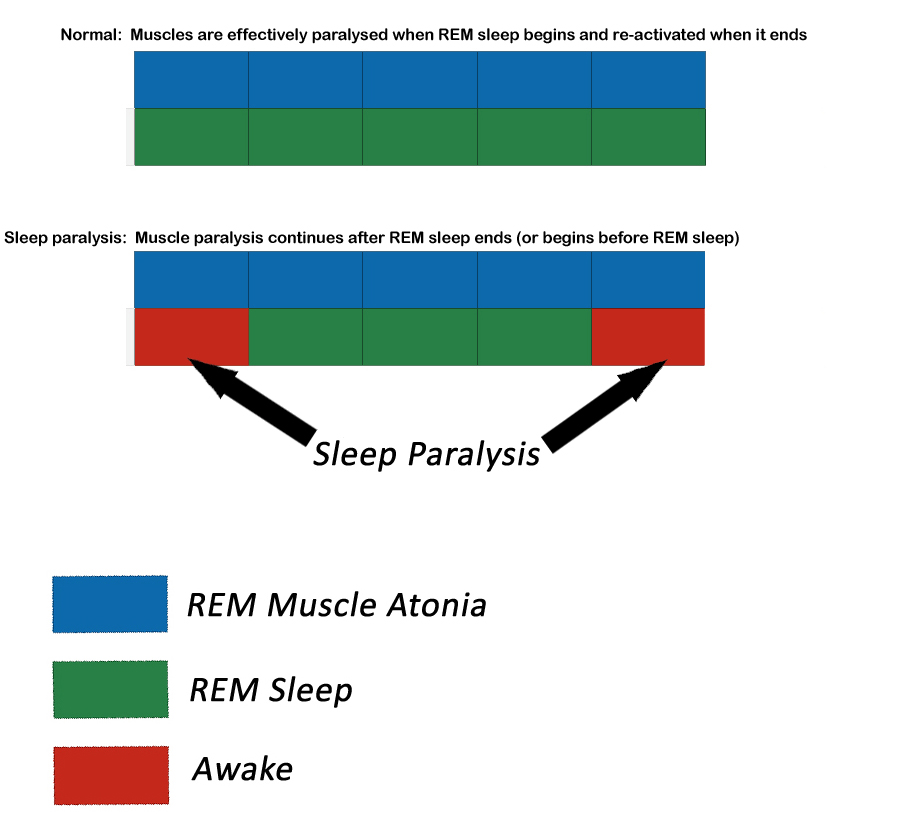Sleep Paralysis as a Result of Nocturnal Disturbances and Respiratory Events?
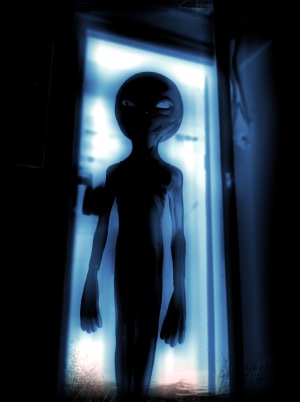
A few years ago I had three instances of sleep paralysis in the same night, leading to finally meeting "The Stranger In The Room". Since then I haven't been afraid of sleep paralysis, in fact I've welcomed it as it's a fairly easy way to initiate a lucid dream.
The other night I experienced sleep paralysis which progressed to an Out of Body Experience (OOBE) then to a Lucid Dream, and it's given me more of an insight into a possible mechanism, which seems to fit with the episode that occurred a few years ago, only this time I was wearing 2 sleep monitors so I've been able to "capture" some elements of it and piece together my theory of the events.
This has led me to realise that there are common factors in the events leading up to sleep paralysis and the subsequent spontaneous lucidity.
I'll begin by describing what happened several years ago. I'm well aware that it didn't happen literally, but bear with me as I think it's best to describe it as it appeared before taking it apart scientifically. I've put the account in a quote-box, so if you really can't bear hearing other people's dreams you can easily skip over it...
I briefly mentioned in this post that as far as getting over the fear of sleep paralysis goes, the turning point for me was a night several years ago when my son had a chest infection causing his nocturnal oxygen levels to drop lower and more frequently than usual meaning that I had to carry out assisted coughing and nasal suction several times. Needless to say our night was very disturbed and we were both very tired. This was the second such night in a row.
On three occasions when I returned to my bed I suffered from sleep paralysis. It was something that I'd grown used to because it had been occurring roughly once every couple of months from the age of around 13.
I'd be laying in bed listening out for his oximeter alarm, then I'd get the familiar whistle in my ears, a crackling noise, then my body would feel crushed and each muscle would feel as if someone had deflated it squashing me further into the bed. Then the familiar (but still frightening) feeling of someone watching me as I lay there struggling trying to talk but only managing a throaty "uugh" noise.
By the third time I almost found it funny (maybe because it had never happened to me so frequently, so this time it felt familiar, almost to the point that I knew I was safe). I kept telling myself that my body was effectively asleep. "Okay, so my body is asleep but somehow I (whatever makes me me) is awake, so that 'me' is going to get up".
"I" then rose above my sleeping self about a foot or two, rolled left (now facing the wall), then floated to the foot of the bed and ended up standing on the floor looking back at my sleeping-self.
This all seemed normal at the time.
It was then that I could finally see the person that had been watching me. He was standing next to me at the foot of the bed. He stepped aside, smiled and gestured towards the mirror at the end of my bed. Then I passed through the mirror, through the wardrobe and then through the wall into my son's room next door. A few moments later I was back in my bed, awake and able to move.
The feeling was incredible, even if it did leave me a bit confused as to whether I was really awake this time. From that moment on I have not been afraid of sleep paralysis.
Now here's a brief account of the episode I had the other night, then I'll draw some parallels between the two nights...
I'd had little sleep the previous night as I had to be awake around 3am for a journey to Manchester. When I got home I was tired, so after dinner I made a point of not staying up late (bed by 9pm). Keen to carry on my experiments with 5-HTP I took 200mg of 5-HTP, connected some channels of the Black Shadow sleep monitor (SPO2, Pulse, Airflow, Body Movement and Sound), put the Zeo headband on, started to record the raw Zeo data with ZeoScope and went to sleep. I was also wearing the Rematee belt (as is normal for me now).
I was asleep within 6 minutes (a fair indicator of sleep-debt). Another indicator of sleep-debt is the fact that I was briefly in REM sleep within 9 minutes of getting into bed!
At 4:02am (I know this from the raw data) I was woken from REM by a noise near my bedroom window. I woke suddenly thinking that I had an intruder. I shuffled round the bed a bit listening for more noises and then lay there replaying the noise in my head trying to make it fit with a known noise. At the time I also considered that it was a hypnagogic noise. It was a multiple banging noise, and I imagined it was probably a picture falling off the wall and bouncing on the wooden floor.
I'd spent around 10 minutes trying to work out a cause of the noise as I dozed in and out of sleep, then the familiar whistling noise of Sleep Paralysis stirred me. I got excited and tried to turn it into an OOBE by pushing "myself" from my head, but that just stopped the noise so I stopped too. Then the whistling returned and I tried rolling "myself" out of my body. It worked, I sat on the edge of the bed and felt sad that I'd actually woken myself up. It turned out to be a false-awakening because I then floated to the end of the bed, realised that I was still dreaming, and from that moment on was in a lucid dream (albeit of the out-of-body variety).
I went to my bedroom door, floated out into the hallway (something I've never been able to do before as doors usually take me to the wrong place).
It was dark, so I put my hand into the adjacent room and tried to put the light on except there wasn't a switch, just a lump of plastic. Again, this prompted me to stay lucid. So I went to the front door (in search of the cause of the noise). As I got to the front door I hesitated because I really wanted the door to take me outside and I was afraid that it would take me to the wrong place (despite the earlier door working correctly), so I "poured" myself through the letterbox and ended up outside on the driveway.
It was still dark outside, and I had trouble seeing, I imagined that this was because I knew that my eyes were shut because I was asleep, so I took my dream-hands and prised open my dream-eyelids in a way that only someone who has ever had conjunctivitis will know. Then it became daylight.
On my driveway was a postman in a bright red fleece. Instantly I was standing next to him and he acknowledged me. I was confused because I knew that this was a dream so expected that I was ghost-like and he wouldn't be able to see me. (I didn't realise it at the time but I was losing lucidity and becoming the observer of the dream again rather than the creator).
The postman apologised for the noise and said that he'd been trying to get a large parcel through the tiny letterbox.
I thanked him, took the parcel and opened my front-door, only to find myself back in bed and waking up.
I then pressed then event-marker on the Black Shadow Monitor and recorded what I remembered of the dream before getting out of bed.
There are a few key similarities that I think are worthwhile extracting from these accounts, and some I've only become aware of in light of the lucid-dream I had the other night.
- Sleep debt from previous night
- Disturbed Sleep that night
- Waking and being fully alert during the night before returning to bed
- Remaining alert for an anticipated noise
- Sleep Paralysis leading to a dream which became lucid ending with me going off in search of the source of the noise.
In the morning I was keen to playback the audio recording of the night's sleep to see if the sound was real, or hypnagogic in nature. I also wanted to see what the various monitors managed to show of this experience.
It turned out the sound was real and the Black Shadow's microphone was sensitive enough to capture it. It was possible to hear a car driving past the house (causing me to stir) followed 6 seconds later by the sound that I heard: it sounded like a rat-a-tat-tat on the letterbox but I still couldn't identify the noise.
The first sound is much clearer through headphones or good speakers.
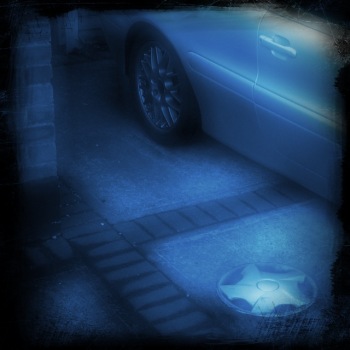
The next morning when I went to my car I found the cause of the noise. The passing car had lost a plastic hubcap which had hit the front of my house (my bedroom wall) and spun on the concrete before settling down, in a similar way to a spinning coin running out of energy on a tabletop.
Looking at the graphs from the Black Shadow and the Zeo, it became fairly clear that this wasn't the trigger for the dream, but it was a very important factor because it caused me to wake up fully. I was very alert as I listened out for the cause of the noise, I was anxious and to be honest a little afraid. This likely put me in a state of heightened awareness and self-consciousness, which on some level carried over for the next few minutes into the dream.
I've annotated the 30 minutes covering the noise and finally waking from the lucid dream (click for a larger version).
The raw single-channel EEG data is displayed at the top. I've selected the point that I first woke after hearing the noise. This section aligns with the marker in the brainwave frequency lines (coloured as indicated by the key).
The hypopneas were the likely cause of the sleep paralysis. I suspect the third one was the trigger as body movement is shown after the first and second along with the noise of bedclothes moving, so sleep paralysis had not set in by then.
I suspect the evening went something like this:
- Initial car and hubcap noise occurred
- I woke suddenly causing a rise in delta wave "noise" as I moved.
- My heartrate more than doubled to 101 bpm (startled and fear) (in line with the delta increase)
- I lay in bed listening for further sounds until...
- I drifted to sleep and quickly went into REM
- My respiratory issues are exacerbated by REM so hypopneas followed (yellow blocks)
- I had micro-awakenings due to the hypopneas (shown by the blue blocks and reduced pleth)
- Due to my heightened state I failed to go back into normal REM and became aware that I was asleep.
- Possibly the final hypopnea ended the dream.
- I laid still for a few moments before dictating the contents of the dream into the microphone
So I suspect that to reliably induce sleep paralysis and/or lucid dreaming two factors are required;
- True wakefulness in the night, not just snoozing a 4am alarm
- A cause of micro-arousals / micro-awakenings.
Wild speculation...
I was hoping for a clear indication of something on the EEG and frequency tracings.
The brainwave frequency analysis in more detail with the purple section believed to be the dream.
If I had to be pushed to look for a trend then I'd say that there was a slight increase in Alpha waves (blue) during the time identified as the dream-period also becoming nearly equal to the Theta wave activity (green) at one point, which declines as I wake, but that is possibly stretching things too far at the moment. However, this overlapping (or meeting) of Theta and Alpha occurs in other places in my sleep (and wake) without any memory of lucidity, so I imagine that finding a simple pattern from a single EEG site is unlikely as things are likely a lot more complicated than that.
For the future
I hope to record the events surrounding more sleep paralysis / lucid dreaming episodes and document any trends that arise rather than just basing my hypothesis on one night.
I'd like to learn to signal to the Zeo that I'm dreaming using eye movements, so that I can further pinpoint when lucidity occurs. Maybe this signal could be on a regular basis (or as regular as the dream permits) to help pinpoint when lucidity begins and ends and normal dreams take over.
Links
 5-HTP,
5-HTP,  Black Shadow,
Black Shadow,  Hub-Cap,
Hub-Cap,  Lucid Dream,
Lucid Dream,  Noise,
Noise,  REM,
REM,  REM Atonia,
REM Atonia,  Respiratory Arousal,
Respiratory Arousal,  Sleep Paralysis,
Sleep Paralysis,  Visi Download,
Visi Download,  ZeoScope,
ZeoScope,  lucid | in
lucid | in  Apnoea,
Apnoea,  Dreams,
Dreams,  Experiment,
Experiment,  Explanations
Explanations 